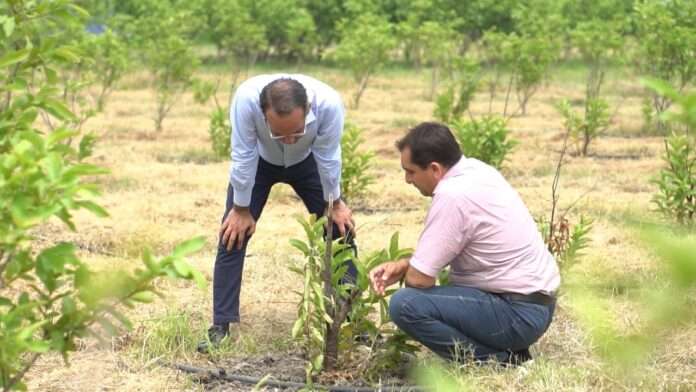The management of sustainable water resources is one of the biggest problems of our time. This is particularly concerning for Pakistan because it is one of the top 10 countries affected by climate change. Nestlé Pakistan launched Caring for Water-Pakistan (C4W-Pakistan), its flagship water stewardship initiative, in 2017. Agriculture, communities, and factories are the main topics of this initiative.
When Nestlé’s Waters Pledge was introduced in 2021, these efforts were hastened. By 2025, the Nestlé Waters Business pledges to contribute to having a positive impact on water everywhere it operates.
Mustapha Yousaf, a farmer working with Nestlé on drip irrigation believes that compared to conventional flood irrigation, drip irrigation allows for over 30-40% savings in water used. “Not only this, due to optimum levels of irrigation facilitated by the technology,” he iterates.
Exploring Technological Innovations in Sustainable Water Management with LUMS
Nestlé Pakistan and the Centre for Water Informatics & Technology (WIT) at the Lahore University of Management Sciences (LUMS) have collaborated to develop low-cost smart soil moisture sensors.
Dr. Abubakr Muhammad, an associate professor and the organization’s first director, oversaw the development of the sensors. “The example of the reduction of water wastage through the smart moisture sensors has been one major success in introducing innovation to combat these challenges,” he reiterated.
These sensors, which are currently in use across 548 acres in Punjab, read the soil’s moisture content and provide the farmer with data updates on which areas and how much irrigation to apply.
Along with these interventions, Nestlé has created demonstration farms that serve as beacons for practitioners, decision-makers, and students at the Pakistan Agriculture and Research Council (PARC) and the University of Veterinary and Animal Sciences (UVAS), Pattoki. These farms showcase best farming practises.
Standards of the Alliance for Water Stewardship (AWS) at Factories
The Alliance for Water Stewardship (AWS) Standard is being implemented at the Sheikhupura Factory under the co-leadership of Muhammad Arshad, Safety, Health, and Environment (SHE) Manager at Nestlé. Using site- and catchment-specific initiatives through stakeholder-inclusive processes, AWS is an international standard for freshwater resources that directs organisations in managing water.
“We have been able to comprehend our water consumption and impacts by using the Alliance for Water Stewardship Standard, and we are working towards sustainable water management. This has increased our internal efficiency, says Arshad.
The Sheikhupura Factory of Nestlé Pakistan was the first location in Pakistan and the first Nestlé location globally to receive the AWS Certification in 2017.
Water Purification and Safety for Communities
Six clean and safe drinking water facilities created by Nestlé offer 60,000 people daily free access to clean water.
One of the many individuals who benefits from these water facilities is Muhammad Ilyas, a resident of Bhatti Dhilwan close to the Sheikhupura Factory.
“Now that I have access to clean, safe drinking water, so do my family and friends. In the vicinity of Bhatti Dhilwan, disease incidence has decreased, says Ilyas.
These are just a few of the people who benefited from the Pakistan initiative called Caring for Water. In order to fulfil the Waters Pledge, Nestlé is currently increasing its interventions.






